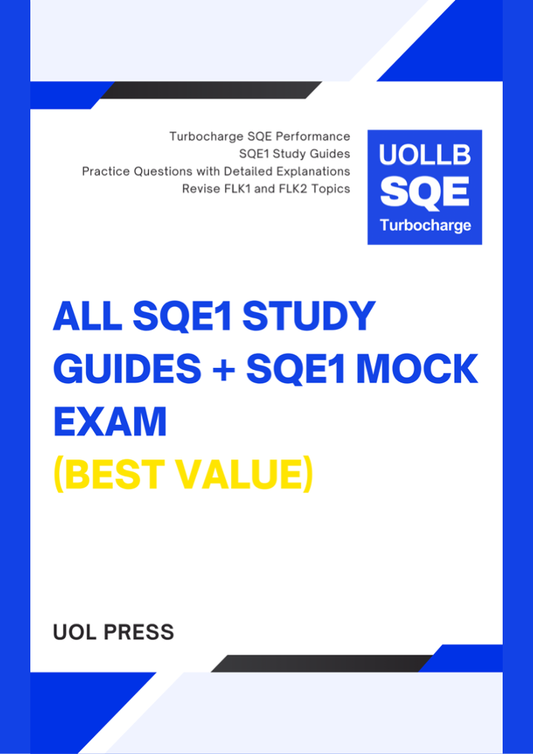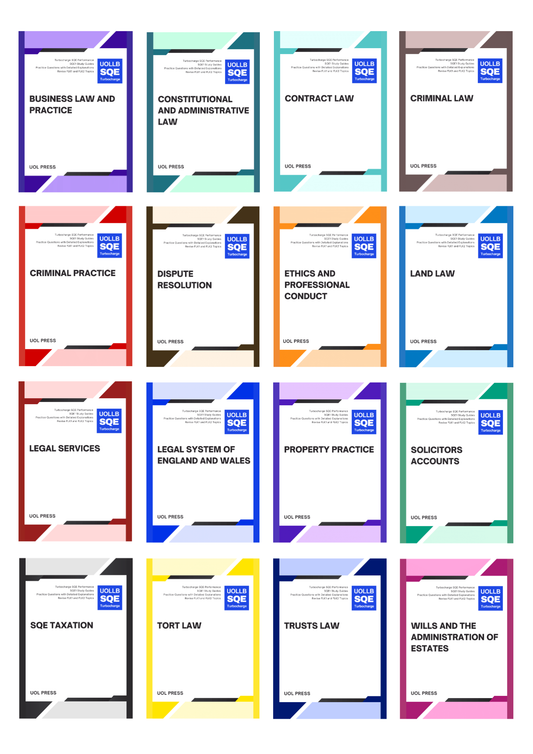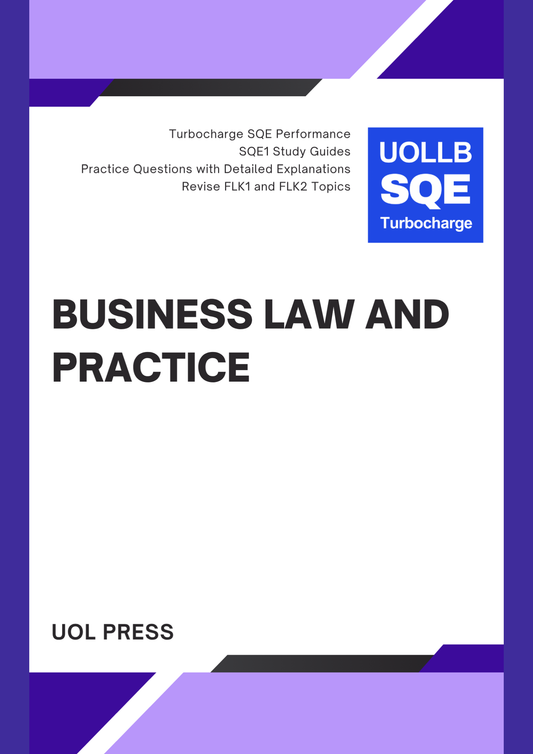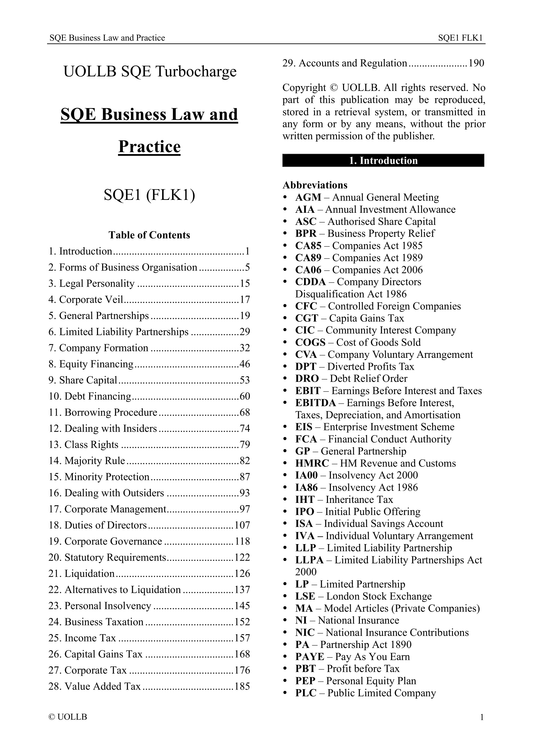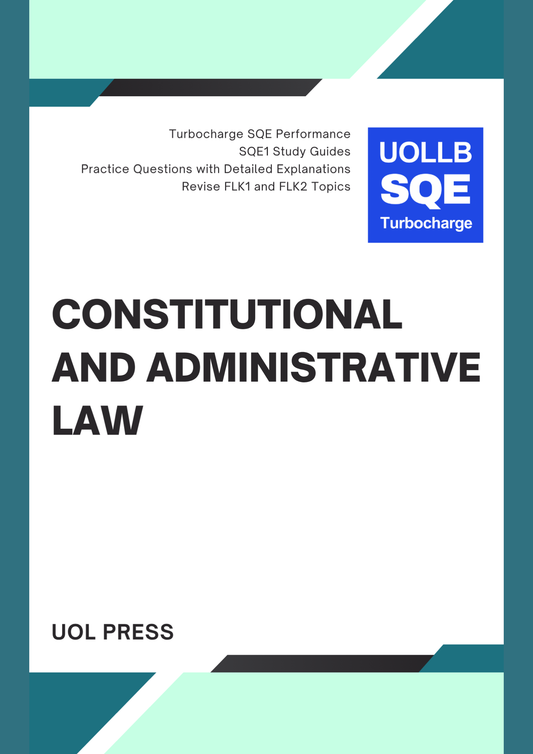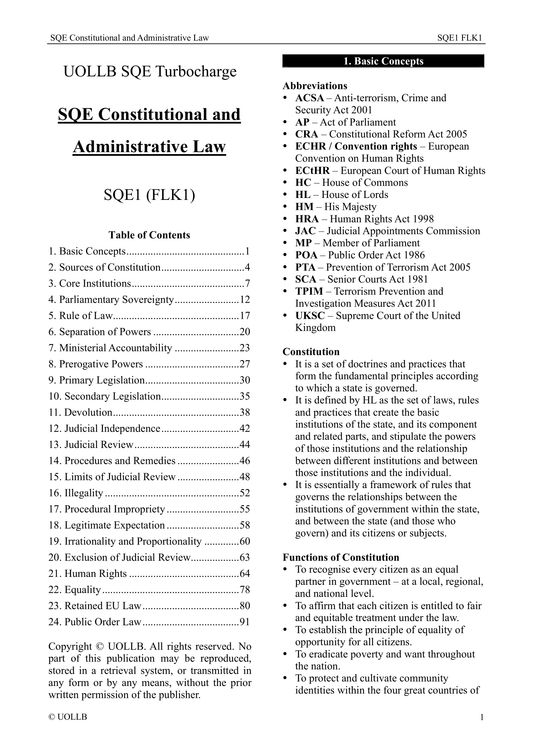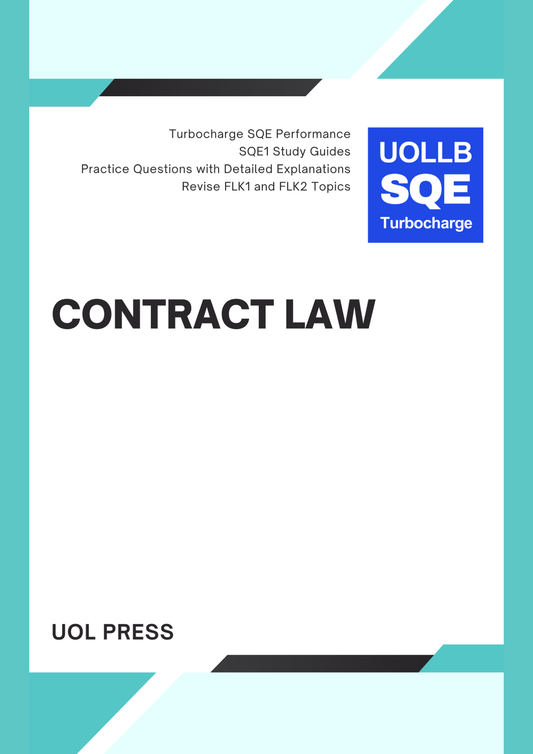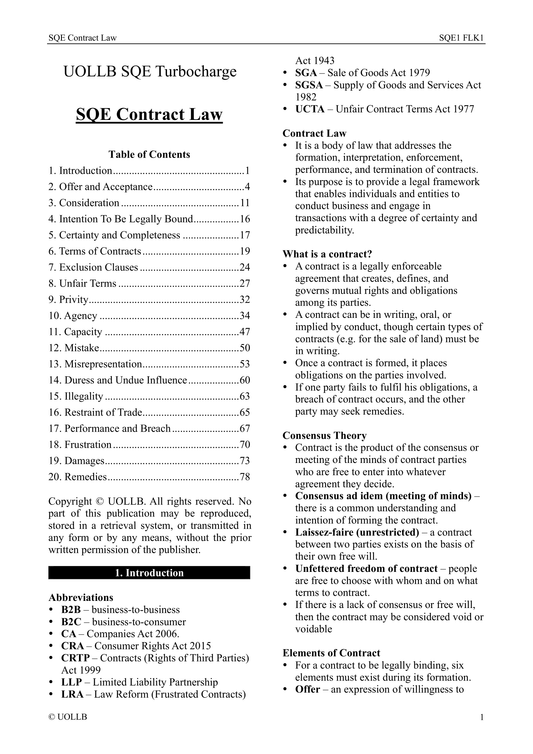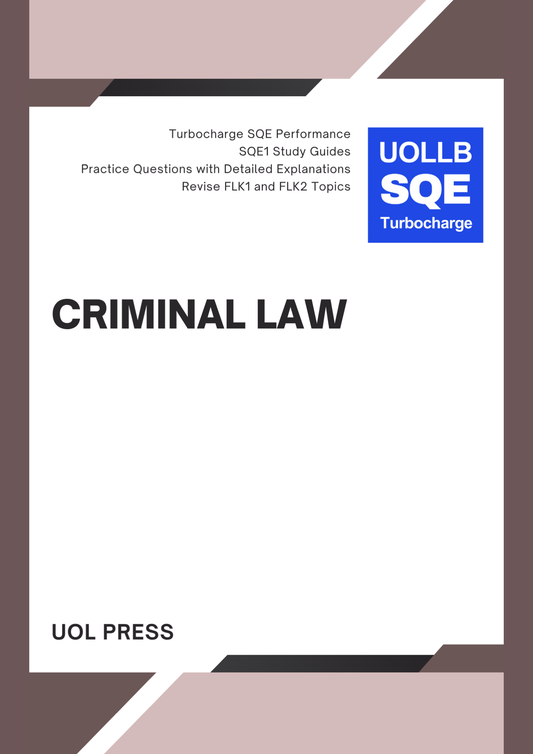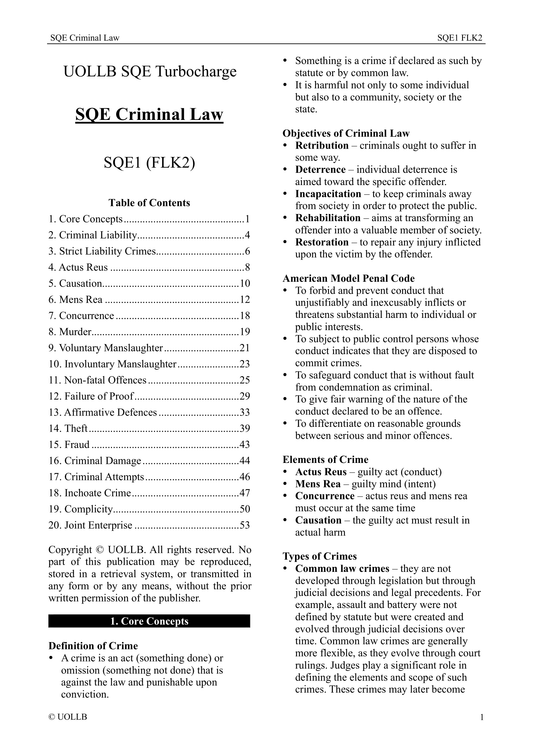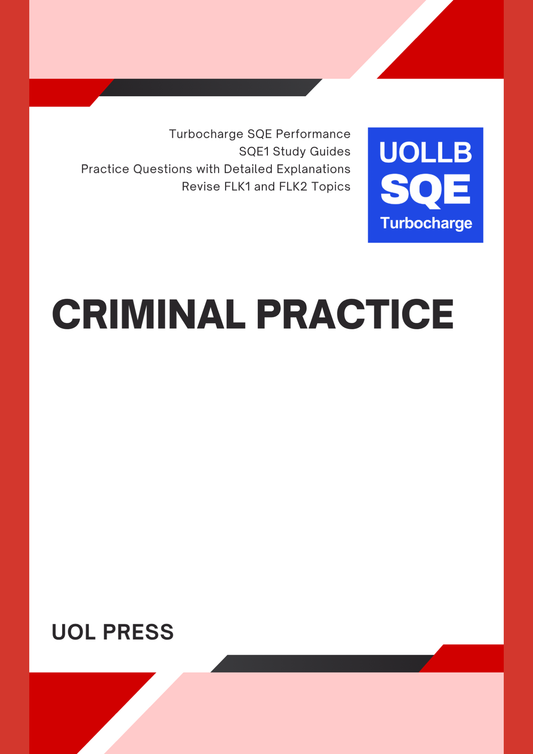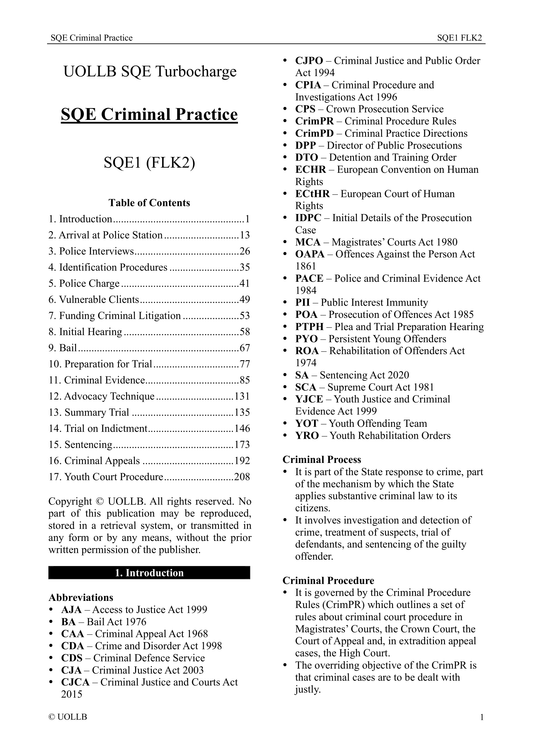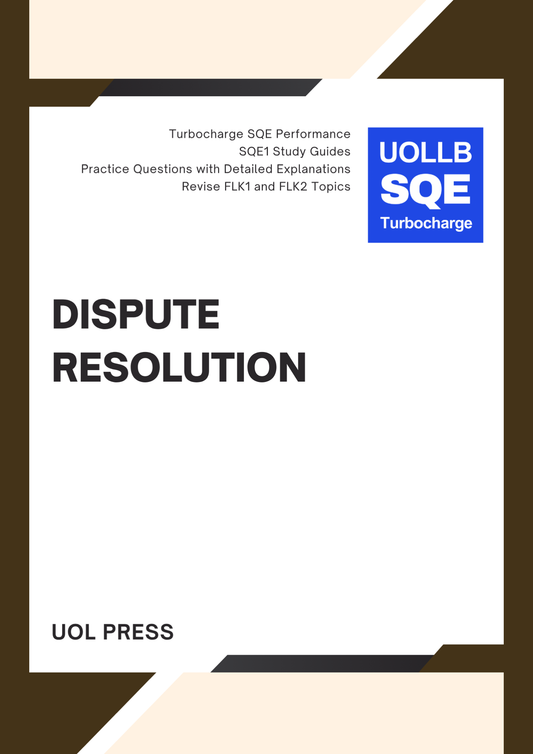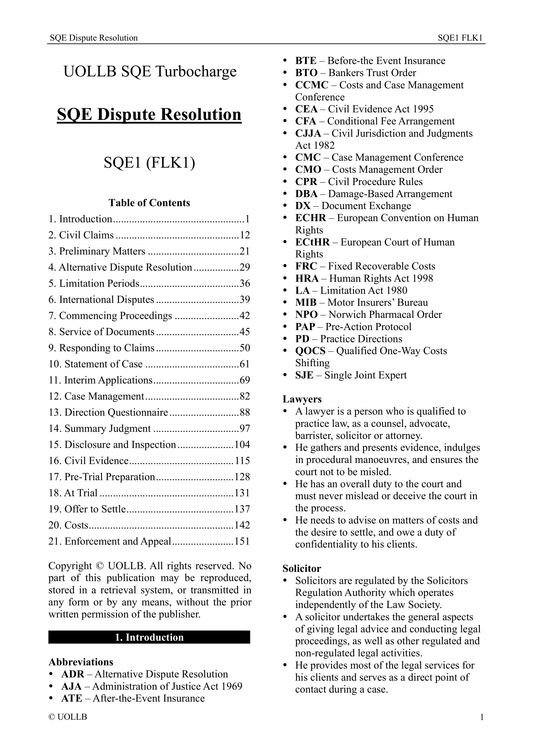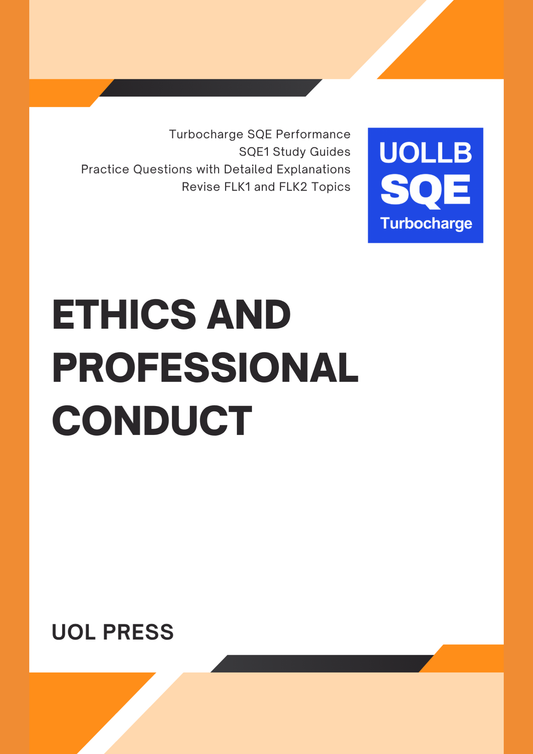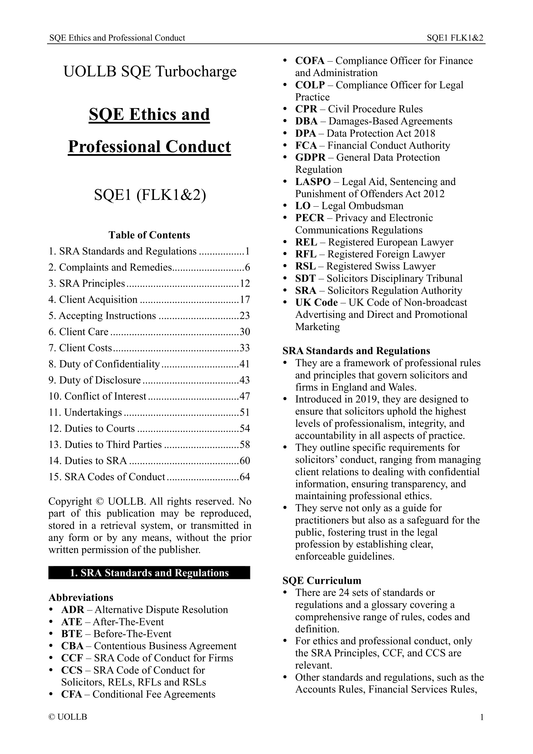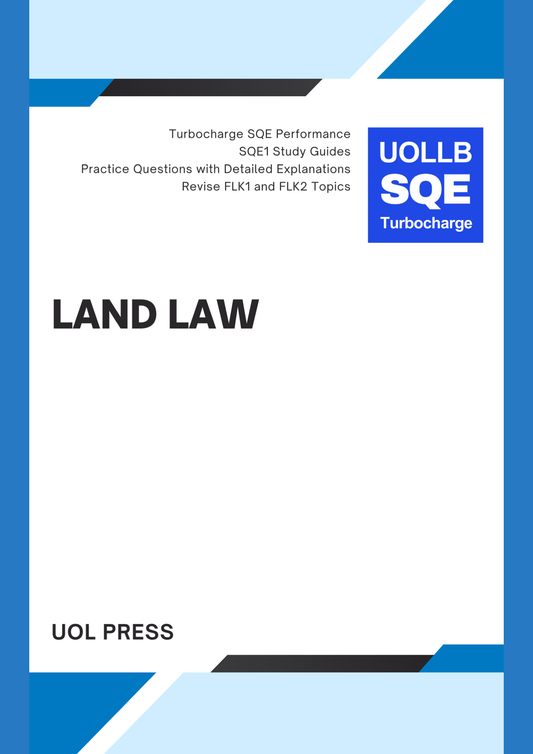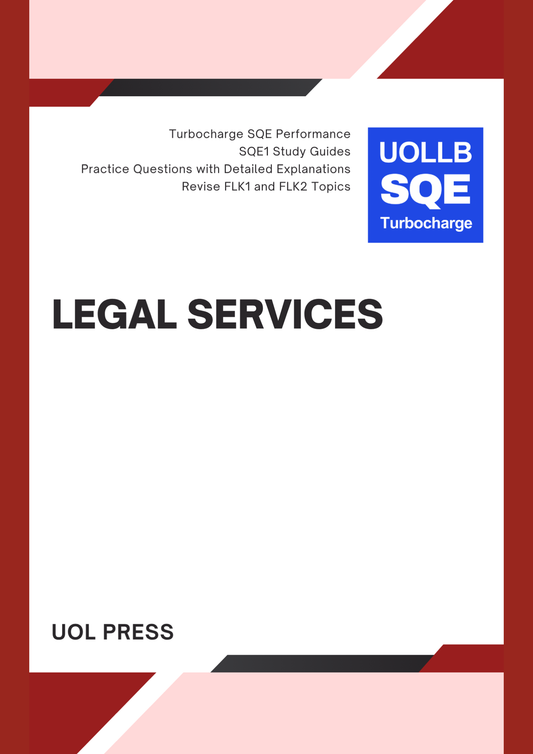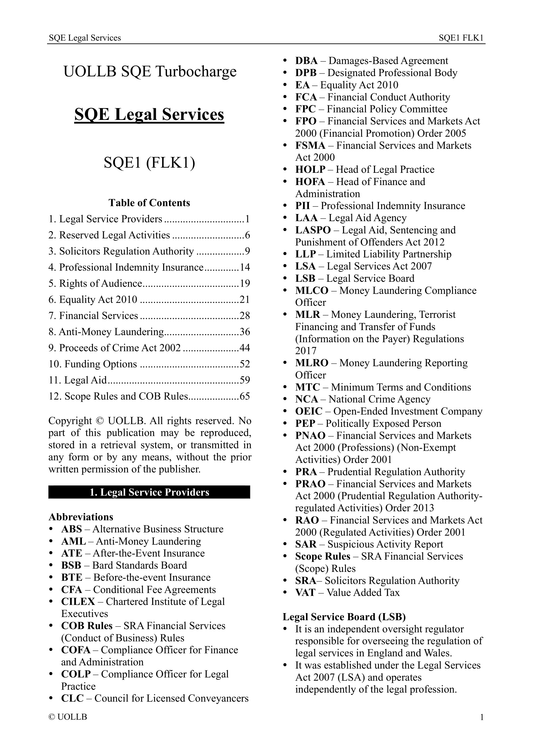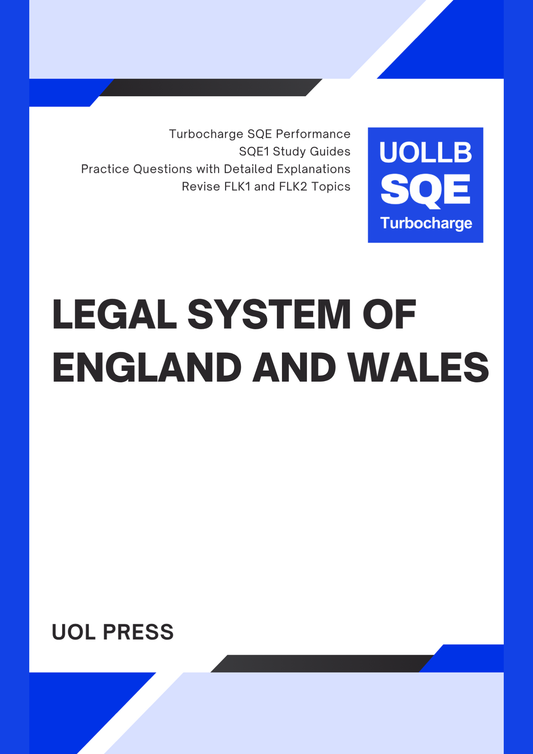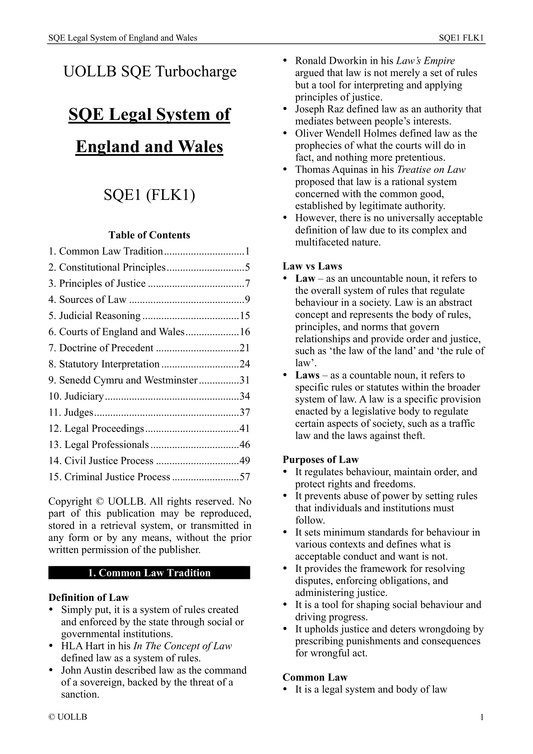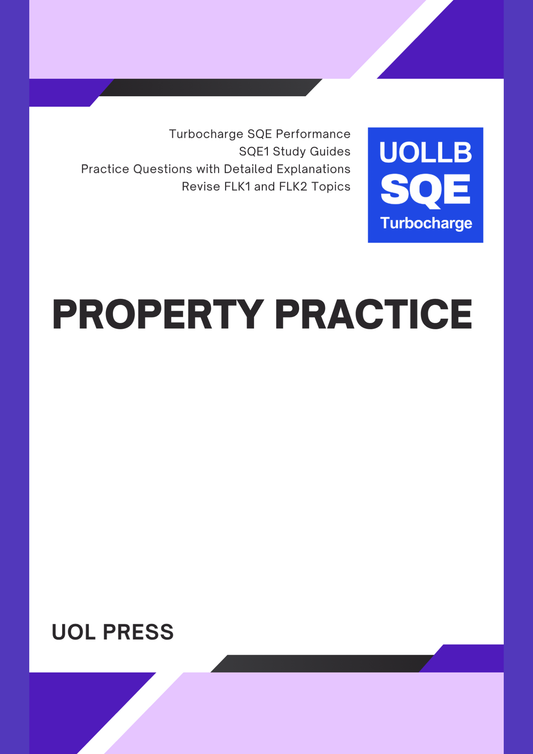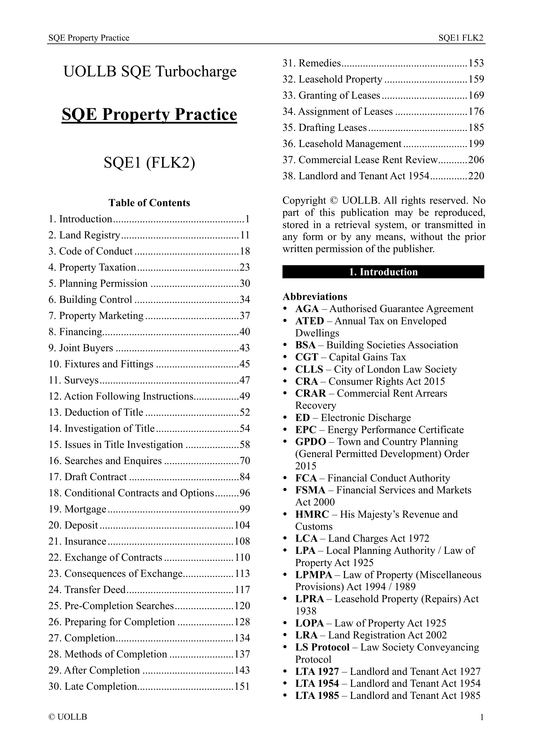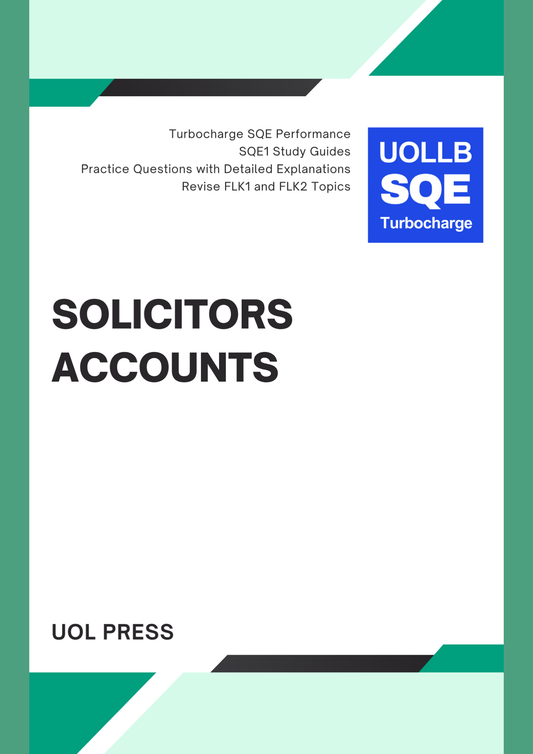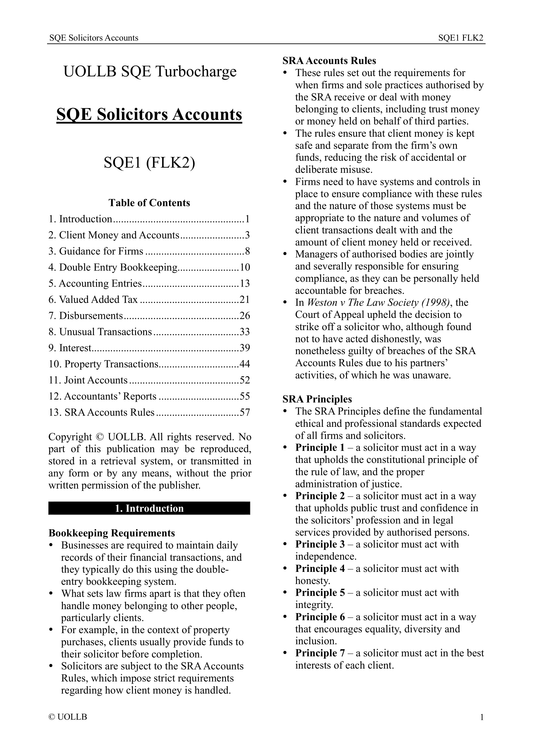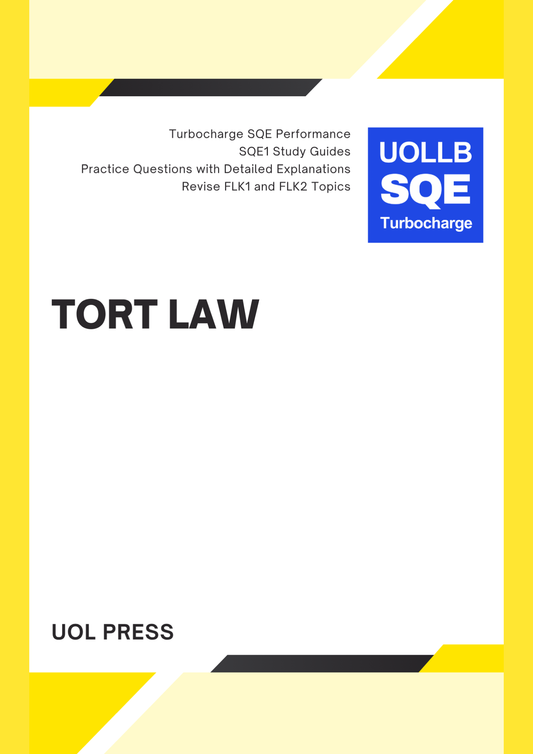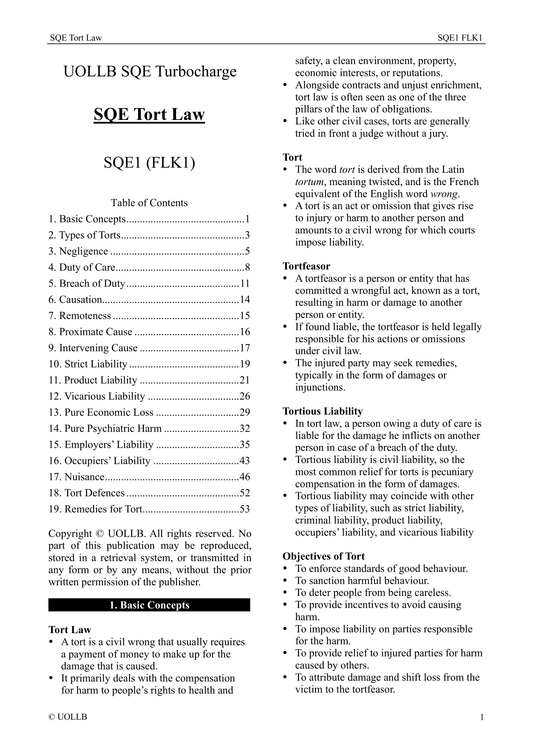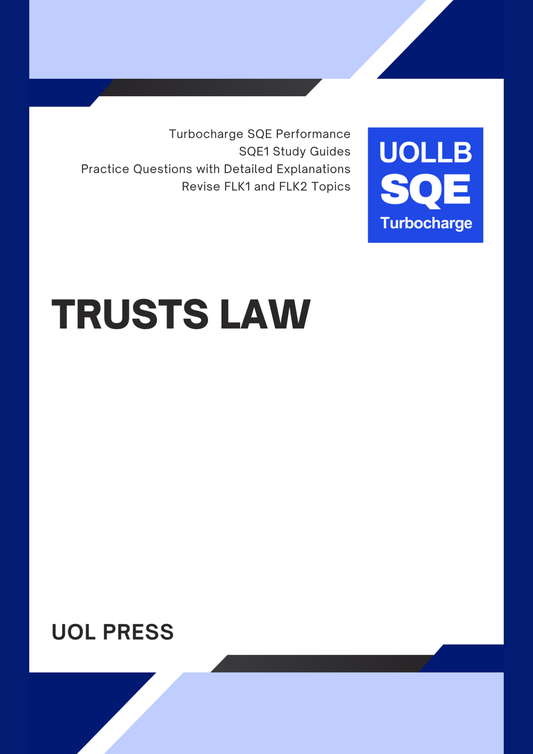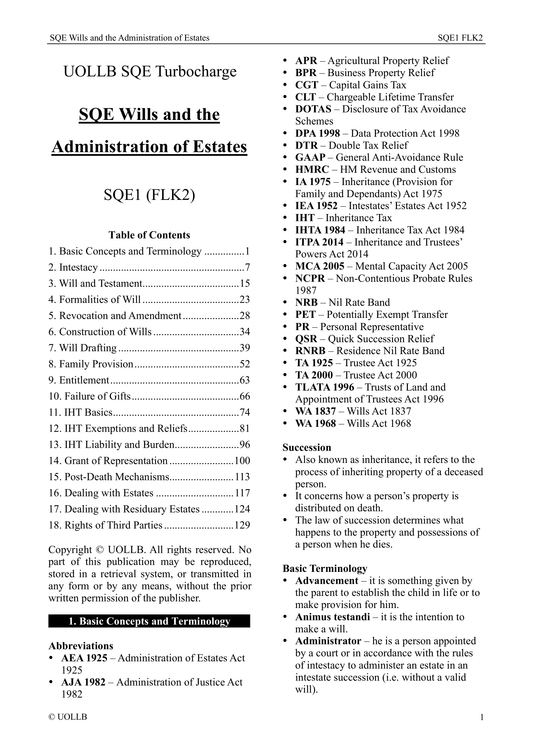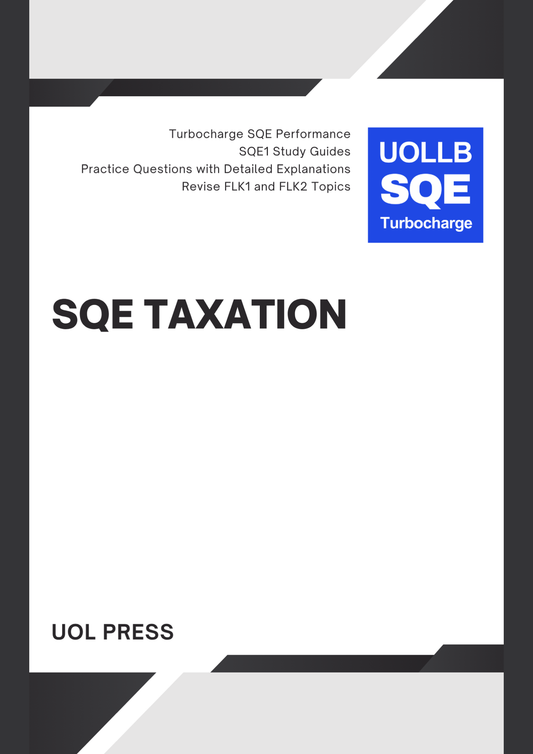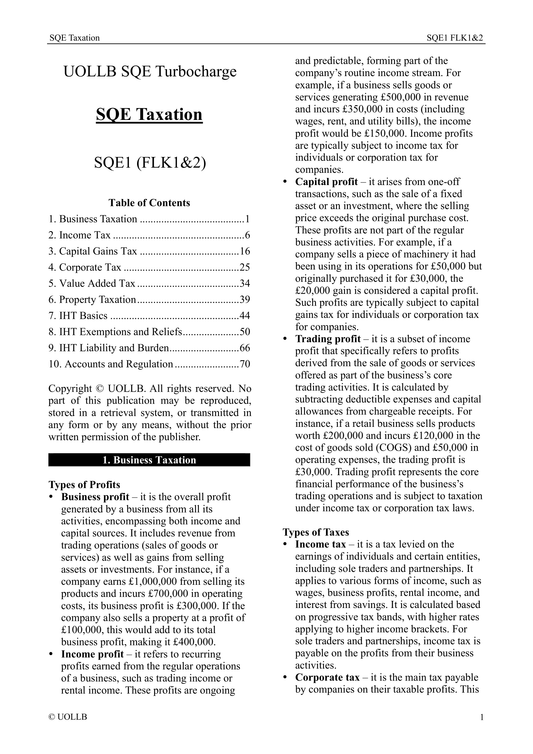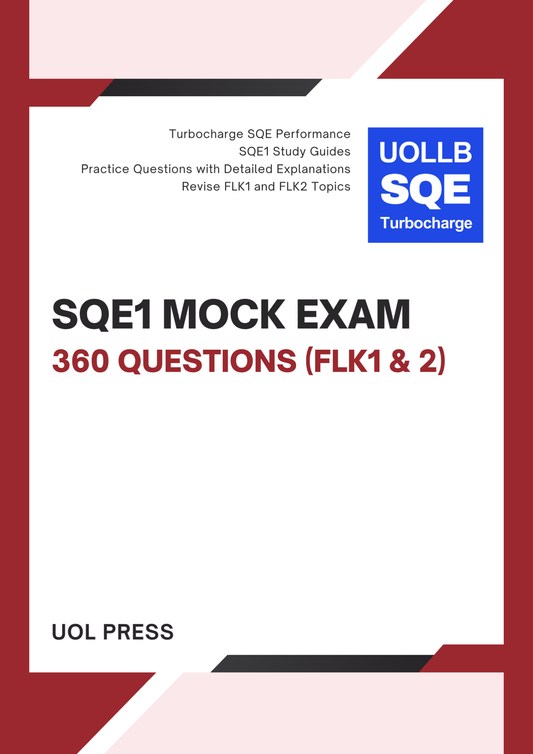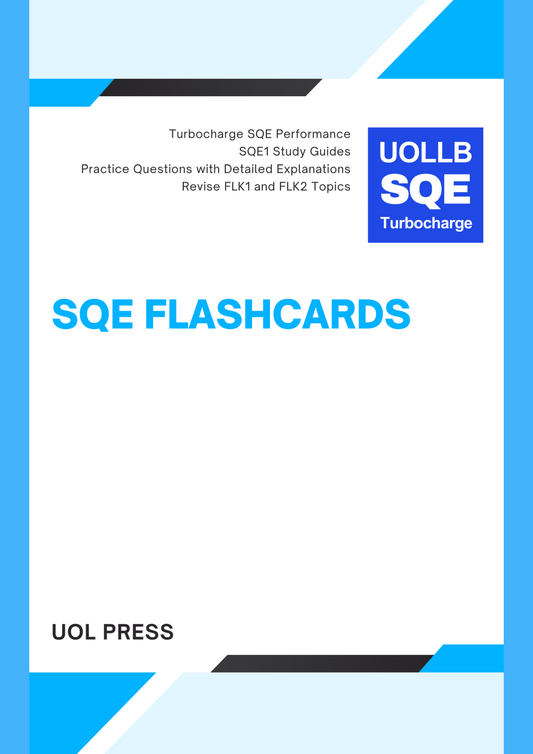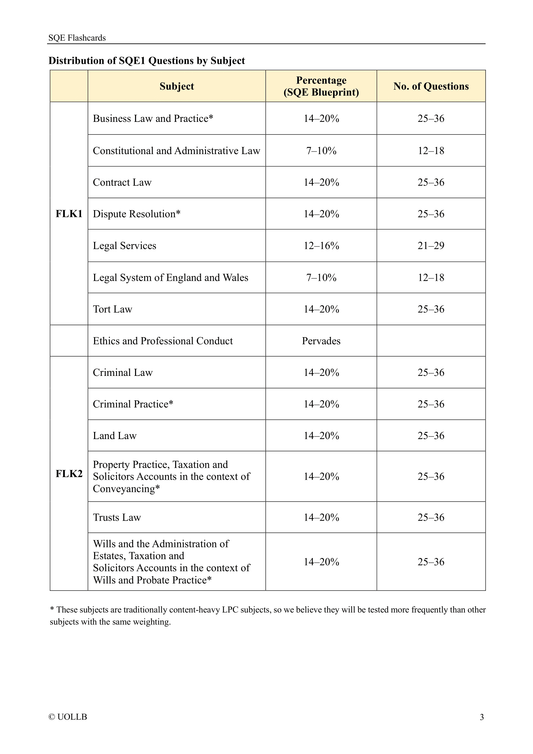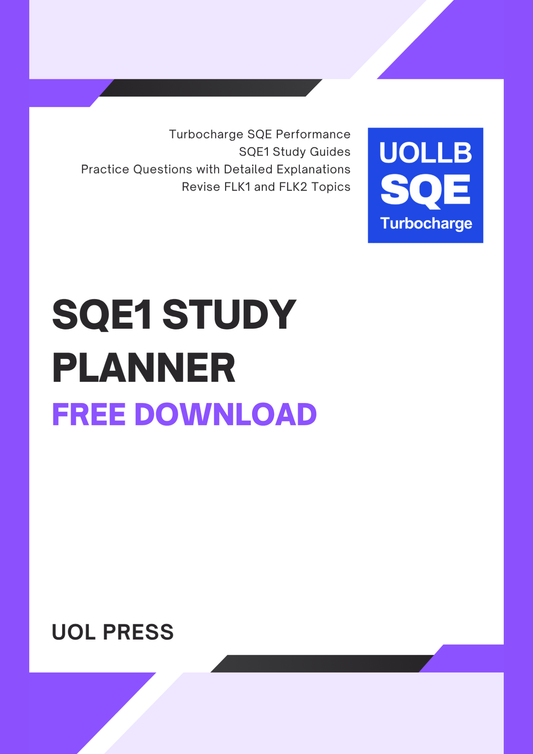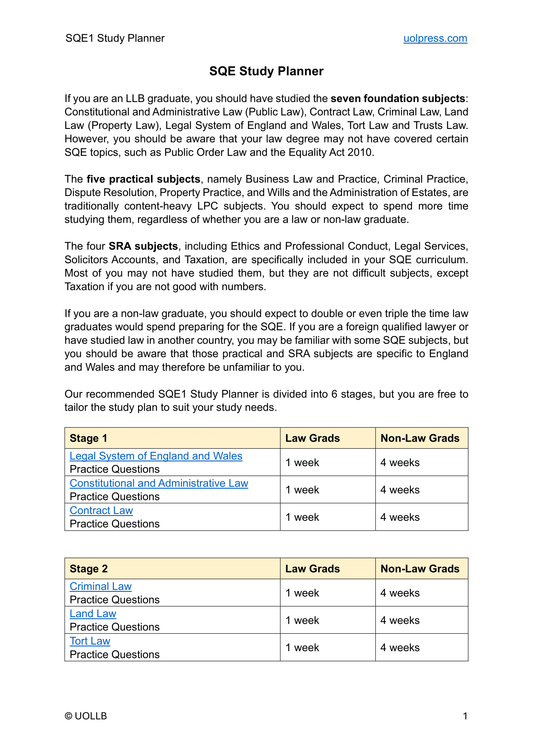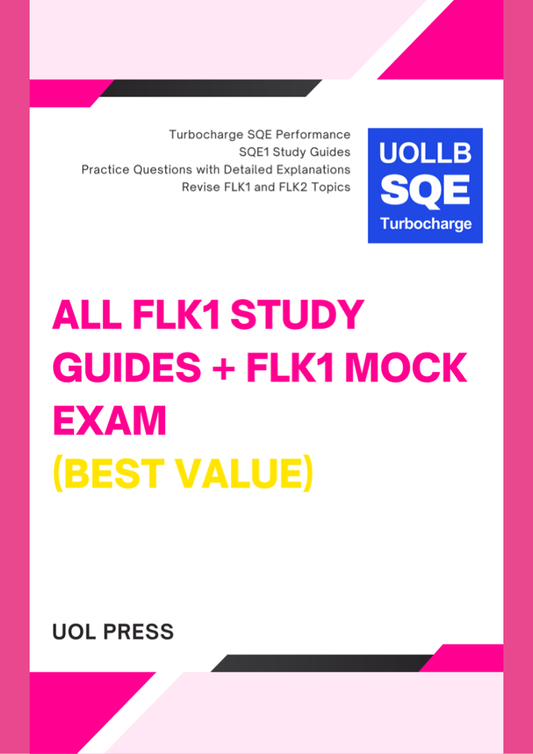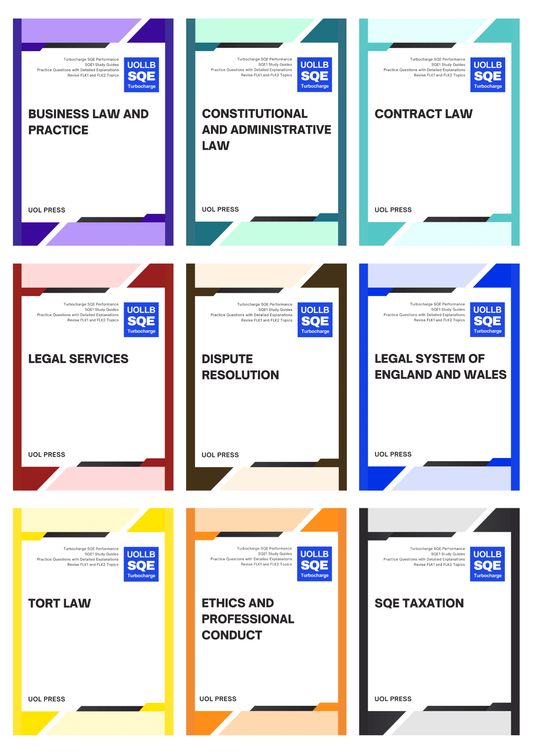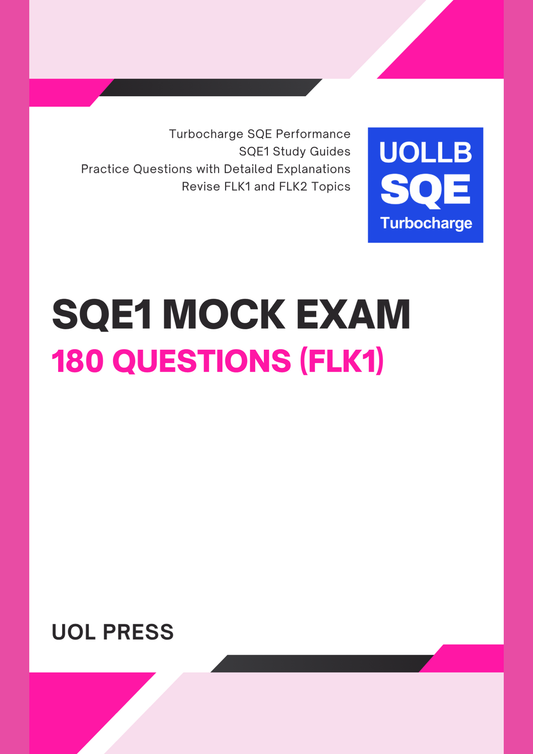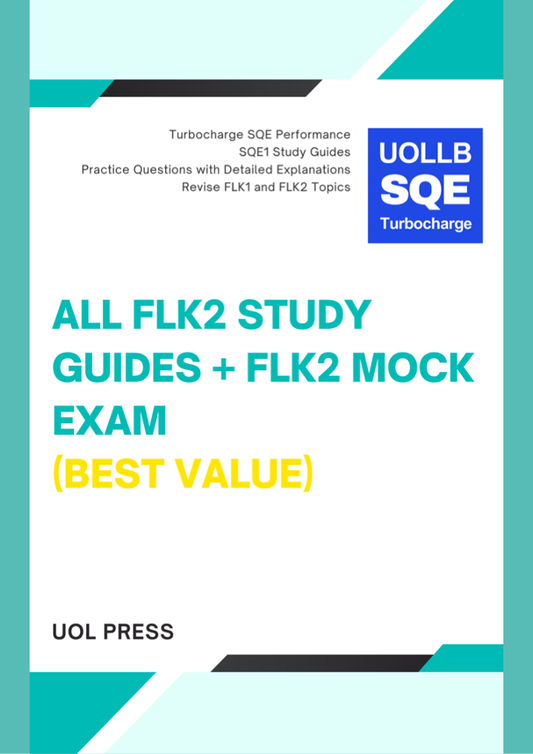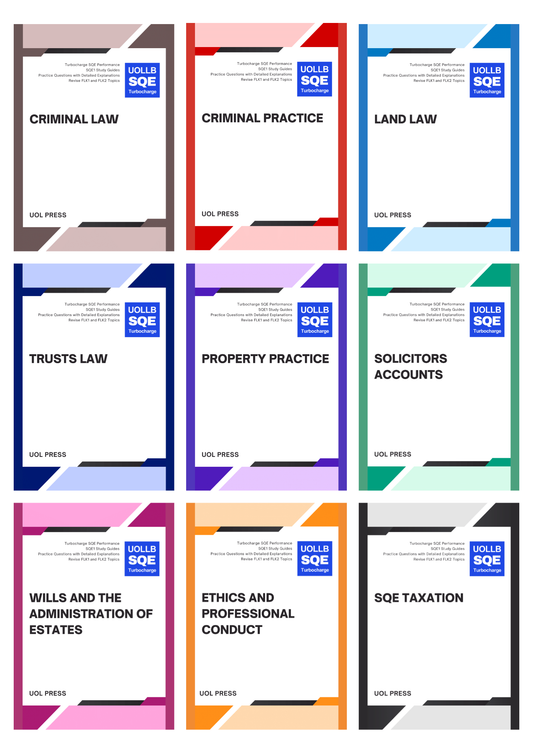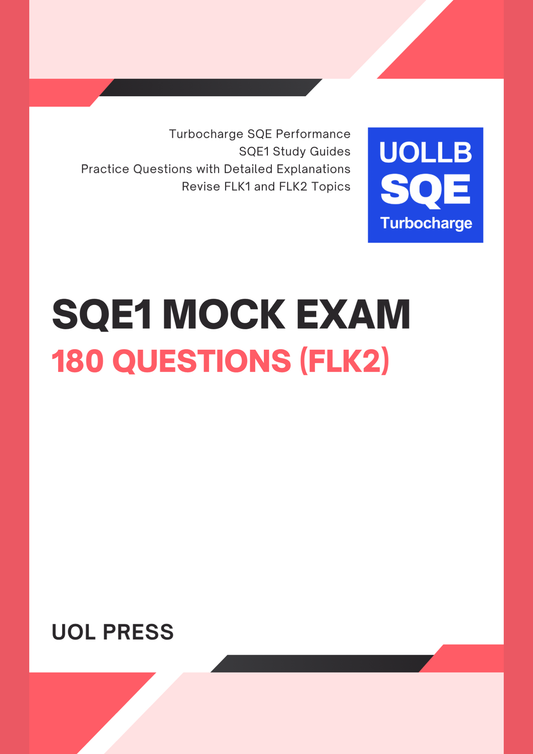SQE Preparation
Share
Preparing for the SQE requires careful selection of a training approach that aligns with your learning style, financial situation, and career aspirations. You have the flexibility to choose from various methods, each offering unique advantages and challenges. These include self-study, specialised SQE preparation courses, and academic degree programmes designed to incorporate SQE training.
Self-Study
Self-study is the most cost-effective and flexible option, ideal for candidates who are comfortable managing their own learning. Resources such as textbooks (e.g. UOLLB SQE Turbocharge), online platforms (e.g. UOL Press and UOLLB), and practice question banks (e.g. SQE1 Mock Exam), allow you to cover the entire SQE syllabus at your own pace. This method allows you to tailor your study schedules around personal commitments, such as work or family responsibilities, making it highly adaptable. However, self-study demands a high level of discipline and motivation, as the lack of structured support means progress can be difficult to track. It is best suited for those who are self-reliant learners or individuals with prior legal experience seeking targeted preparation.
SQE Preparation Course
For those who prefer a more structured approach, SQE preparation courses offered by various training providers are an excellent choice. These courses are specifically designed to cover the SQE syllabus comprehensively and often include features such as mock exams, practice assessments, and access to experienced tutors. Many providers also offer flexible payment options or partnerships with financial institutions, making these courses accessible to a broader range of candidates. Additionally, you may benefit from expert guidance, regular feedback, and the opportunity to simulate the SQE exam environment, which can be invaluable for building confidence. As some preparation courses can be quite expensive, it is important to carefully review the curriculum, instructor credentials, and additional resources offered before selecting a course to ensure it aligns with your needs.
Academic Degree Programmes
Academic degree programmes, such as undergraduate law degrees or master’s programmes, have also adapted to incorporate SQE preparation into their curricula. These programmes allow you to combine academic training with practical preparation for the assessments, providing a well-rounded foundation in legal principles and skills. Many universities also offer access to pro bono work or law clinics, which can count towards Qualifying Work Experience (QWE), adding practical experience to academic learning. Funding options for these programmes include undergraduate and postgraduate student loans, making them a financially accessible pathway for many. However, it is one of the most expensive methods of preparing for the SQE, as an academic degree programme can easily cost over £15,000. Before enrolling in such a programme, you should make sure that your financial situation allows you to commit to the expense without undue hardship.
Each of these training options caters to different learning preferences and circumstances. Self-study is ideal for those seeking affordability and flexibility, preparation courses provide structured guidance and expert support, and academic programmes offer a blend of in-depth legal education and practical preparation. Choosing the right method requires careful consideration of your financial situation, time commitment, and personal learning style.
Self-Study
Self-study is the most cost-effective and flexible option, ideal for candidates who are comfortable managing their own learning. Resources such as textbooks (e.g. UOLLB SQE Turbocharge), online platforms (e.g. UOL Press and UOLLB), and practice question banks (e.g. SQE1 Mock Exam), allow you to cover the entire SQE syllabus at your own pace. This method allows you to tailor your study schedules around personal commitments, such as work or family responsibilities, making it highly adaptable. However, self-study demands a high level of discipline and motivation, as the lack of structured support means progress can be difficult to track. It is best suited for those who are self-reliant learners or individuals with prior legal experience seeking targeted preparation.
SQE Preparation Course
For those who prefer a more structured approach, SQE preparation courses offered by various training providers are an excellent choice. These courses are specifically designed to cover the SQE syllabus comprehensively and often include features such as mock exams, practice assessments, and access to experienced tutors. Many providers also offer flexible payment options or partnerships with financial institutions, making these courses accessible to a broader range of candidates. Additionally, you may benefit from expert guidance, regular feedback, and the opportunity to simulate the SQE exam environment, which can be invaluable for building confidence. As some preparation courses can be quite expensive, it is important to carefully review the curriculum, instructor credentials, and additional resources offered before selecting a course to ensure it aligns with your needs.
Academic Degree Programmes
Academic degree programmes, such as undergraduate law degrees or master’s programmes, have also adapted to incorporate SQE preparation into their curricula. These programmes allow you to combine academic training with practical preparation for the assessments, providing a well-rounded foundation in legal principles and skills. Many universities also offer access to pro bono work or law clinics, which can count towards Qualifying Work Experience (QWE), adding practical experience to academic learning. Funding options for these programmes include undergraduate and postgraduate student loans, making them a financially accessible pathway for many. However, it is one of the most expensive methods of preparing for the SQE, as an academic degree programme can easily cost over £15,000. Before enrolling in such a programme, you should make sure that your financial situation allows you to commit to the expense without undue hardship.
Each of these training options caters to different learning preferences and circumstances. Self-study is ideal for those seeking affordability and flexibility, preparation courses provide structured guidance and expert support, and academic programmes offer a blend of in-depth legal education and practical preparation. Choosing the right method requires careful consideration of your financial situation, time commitment, and personal learning style.
